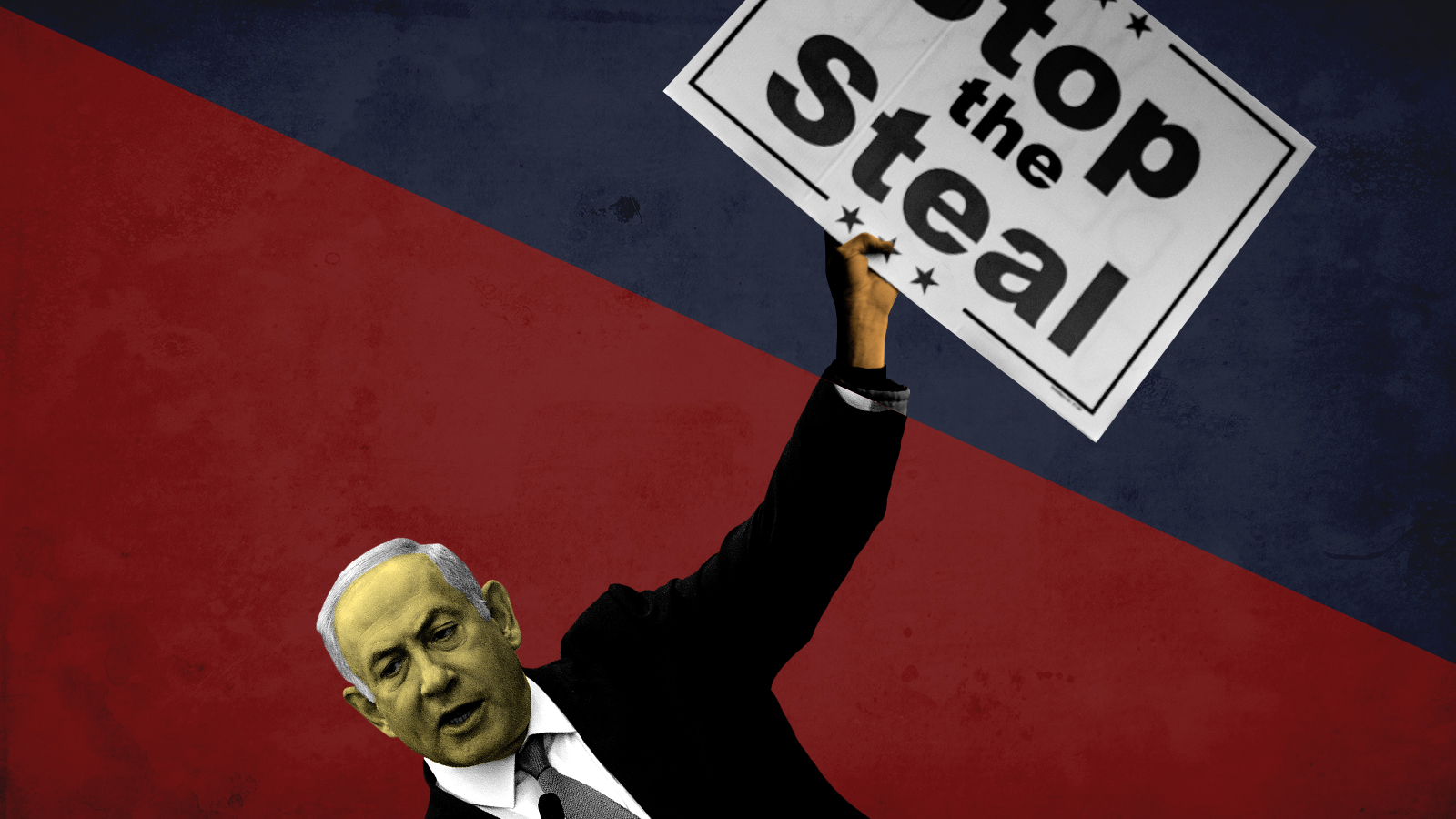Trump's corrosive influence on democracy goes global


A free daily email with the biggest news stories of the day – and the best features from TheWeek.com
You are now subscribed
Your newsletter sign-up was successful
How big of a threat does Donald Trump pose to American democracy? This question has been asked countless times and answered in innumerable ways since his surprise victory in 2016. The shocking events of Jan. 6 seemed to vindicate the alarmists. And yet the insurrection was over in a matter of hours, the president stepped down, and his successor was inaugurated without further incident.
Recent events in Israel show, however, that Trump's destabilizing actions following his defeat in Nov. 2020 may extend well beyond the first week of Jan. 2021 — and even beyond the boundaries of the United States.
After 12 years leading Israel, Benjamin Netanyahu looks days away from being replaced by a broad coalition of parties united by little beyond a desire to oust him as prime minister. But instead of accepting the outcome and vowing to fight another day, Netanyahu and his political allies on the Israeli right have chosen to follow Trump's example of denying the legitimacy of his own defeat and the victory of his opponents. And he's doing so in precisely the same conspiratorial and insurrectionary terms as Trump did, speaking of the electoral outcome as the "fraud of a century" and the result of a "deep state" plot, while allies in his party complain that they are victims of Big Tech "censorship."
The Week
Escape your echo chamber. Get the facts behind the news, plus analysis from multiple perspectives.

Sign up for The Week's Free Newsletters
From our morning news briefing to a weekly Good News Newsletter, get the best of The Week delivered directly to your inbox.
From our morning news briefing to a weekly Good News Newsletter, get the best of The Week delivered directly to your inbox.
In a strong New York Times column Tuesday morning, Ross Douthat threw a welcome bit of cold water on the most fearful progressive fretting about the prospects of Republicans stealing the election of 2024. Yet events in Israel point in a more ominous direction. In refusing (to this day) to accept the legitimacy of the election that led to his defeat, Trump injected the kind of autocratic thinking and tactics associated with Russia's Vladimir Putin and Turkey's Recep Tayyip Erdogan into the political culture of a long-established democracy — and managed to bring a significant chunk of his party along with him. And now Netanyahu is trying something similar in another democratic system.
How long can the peaceful transfer of power between parties in a democracy be maintained when one side talks and acts as if a loss, and a victory by the opposition, is simply inconceivable? Thanks to Donald Trump and his influence, we may be distressingly close to finding out.
A free daily email with the biggest news stories of the day – and the best features from TheWeek.com
Damon Linker is a senior correspondent at TheWeek.com. He is also a former contributing editor at The New Republic and the author of The Theocons and The Religious Test.
-
 What to know before filing your own taxes for the first time
What to know before filing your own taxes for the first timethe explainer Tackle this financial milestone with confidence
-
 The biggest box office flops of the 21st century
The biggest box office flops of the 21st centuryin depth Unnecessary remakes and turgid, expensive CGI-fests highlight this list of these most notorious box-office losers
-
 The 10 most infamous abductions in modern history
The 10 most infamous abductions in modern historyin depth The taking of Savannah Guthrie’s mother, Nancy, is the latest in a long string of high-profile kidnappings
-
 ‘Bad Bunny’s music feels inclusive and exclusive at the same time’
‘Bad Bunny’s music feels inclusive and exclusive at the same time’Instant Opinion Opinion, comment and editorials of the day
-
 Big-time money squabbles: the conflict over California’s proposed billionaire tax
Big-time money squabbles: the conflict over California’s proposed billionaire taxTalking Points Californians worth more than $1.1 billion would pay a one-time 5% tax
-
 Did Alex Pretti’s killing open a GOP rift on guns?
Did Alex Pretti’s killing open a GOP rift on guns?Talking Points Second Amendment groups push back on the White House narrative
-
 Washington grapples with ICE’s growing footprint — and future
Washington grapples with ICE’s growing footprint — and futureTALKING POINTS The deadly provocations of federal officers in Minnesota have put ICE back in the national spotlight
-
 How Iran protest death tolls have been politicised
How Iran protest death tolls have been politicisedIn the Spotlight Regime blames killing of ‘several thousand’ people on foreign actors and uses videos of bodies as ‘psychological warfare’ to scare protesters
-
 Trump’s Greenland ambitions push NATO to the edge
Trump’s Greenland ambitions push NATO to the edgeTalking Points The military alliance is facing its worst-ever crisis
-
 The Board of Peace: Donald Trump’s ‘alternative to the UN’
The Board of Peace: Donald Trump’s ‘alternative to the UN’The Explainer Body set up to oversee reconstruction of Gaza could have broader mandate to mediate other conflicts and create a ‘US-dominated alternative to the UN’
-
 Israel’s E1 zone in the West Bank: the death of the two-state solution?
Israel’s E1 zone in the West Bank: the death of the two-state solution?The Explainer Controversial new settlement in occupied territories makes future Palestinian state unviable, critics claim
